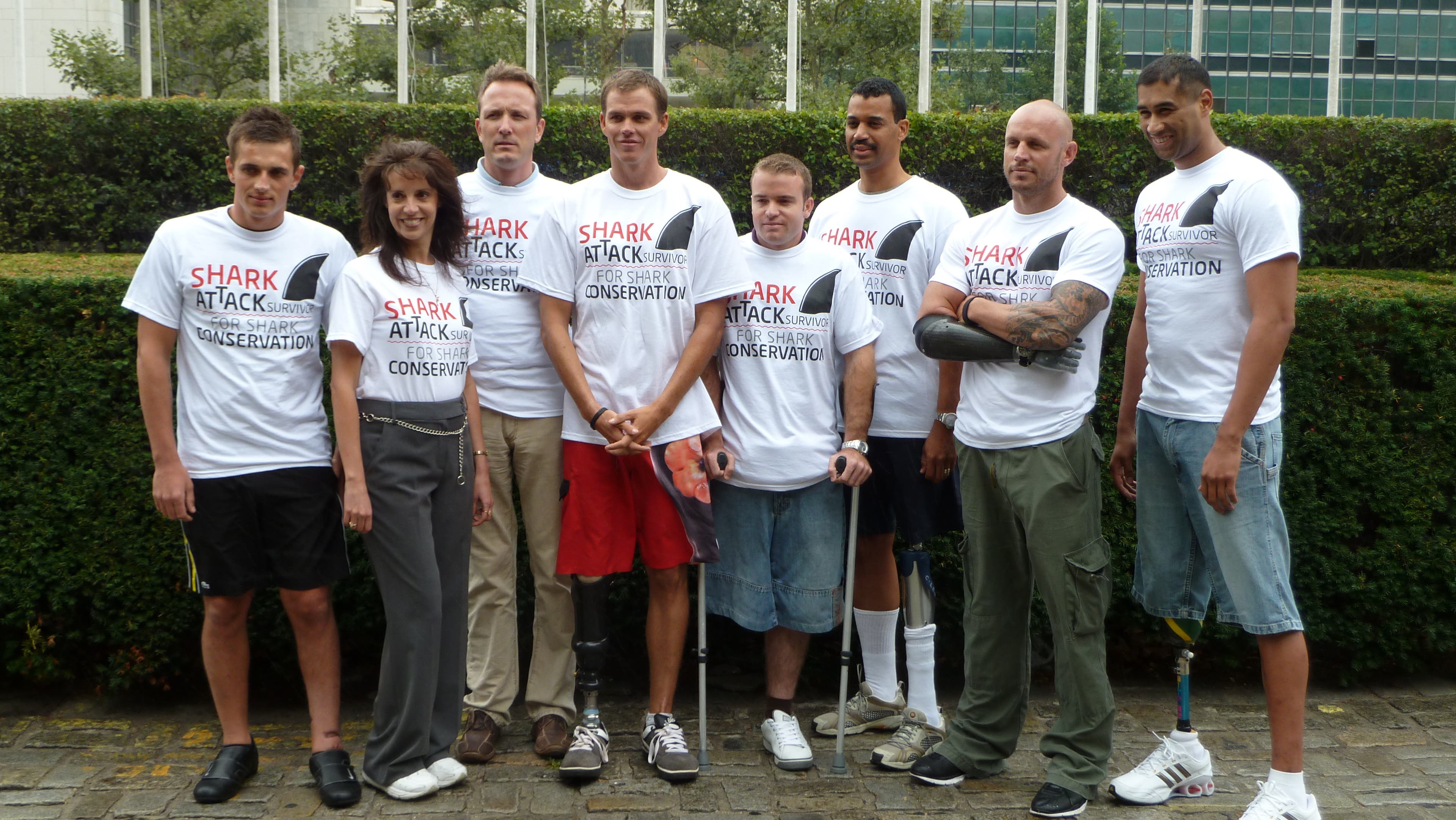Isn't It Ironic? Q & A with Debbie Salamone, of Shark Attack Survivors for Shark Conservation


Photo courtesy The Pew Charitable Trusts.
I’ve survived another Shark Week. Every August, I steer clear of the Discovery Channel’s glut of sharks-ploitative shows with titles like Voodoo Sharks and Great White Serial Killer. Still, I’ve got to credit Shark Week with every now and then presenting an edifying program like Shark Fight, about Shark Attack Survivors for Shark Conservation (yes, you read that right). Here, a Q & A with the organizer of the group, Debbie Salamone, whose Achilles tendon was severed in a shark attack—she recovered successfully to resume her hobby of competitive dancing.
What do people most get wrong about sharks?
I believe people don’t understand that sharks have more to fear from us than we do from them. Sharks attack an average of 70 people worldwide each year. Yet humans kill about 100 million sharks annually, mostly for fins, which are prized as a soup ingredient in Asian markets. A third of all shark species are headed for extinction.
How do you think you survived your shark attack?
I believe the shark realized my foot wasn’t the tasty fish it was hunting and let go during our short struggle. Many attacks are a case of mistaken identity.
Can you talk about your journey from being a victim to a defender of sharks?
As a conservation-minded person all my life and having worked for years as an environmental journalist, I just couldn’t stop searching for the reason this happened to me of all people. After many months, I came to see it as a test of my commitment to conservation: could I still love the ocean after experiencing its darkest side? I earned a master’s degree in environmental sciences and policy from Johns Hopkins University and became a communications officer at The Pew Charitable Trusts, which runs a global shark conservation campaign. The idea to use my unique position and recruit other survivors for shark conservation work came naturally. It’s the ultimate story of irony, and of forgiveness.
How effective is the U.S. shark-finning ban? How would you strengthen it?
The ban requires that sharks caught and brought into U.S. ports are intact. It’s designed to prevent fishermen from slicing off the fins at sea and dumping the animal, sometimes still alive, back into the water where it drowns or bleeds to death. The ban was strengthened in 2011 when President Barack Obama signed the Shark Conservation Act (SCA), which closed some loopholes. But now we may be taking a step backward in shark conservation. In the last few years, 10 U.S. states and territories have passed even tougher legislation that bans the trade of shark fins. Federal regulators crafting rules to put the SCA into effect say that those SCA strong protections in the states and territories may be overturned because they conflict with federal law and interfere with fishing in U.S. waters. Pew and the survivors are working to change those proposed SCA rules.